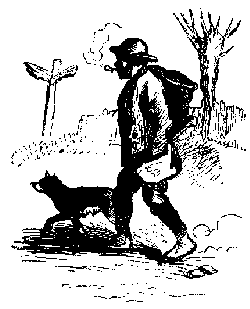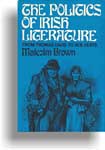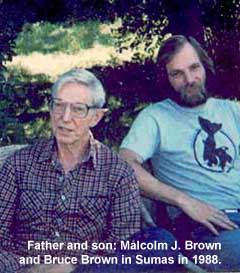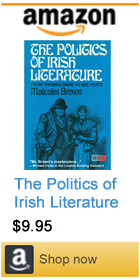Chapter Seven
'48 and Insurrection
AS THE YOUNG Ireland Confederates were being pitilessly knocked about in furtherance of their political education, a strange new actor came on the scene: James Fintan Lalor. His collected writings, which can be read through in half an hour, included a dozen or so bold epigrams that made a great reverberation through Dublin's stagnant famine air. He was an original, a deformed, asthmatic recluse, boorish and impossible to work with. Still, he had generated a stock of fresh ideas about the condition of the country. The Nation's nadir, the leading article quoted earlier - "Alas! alas! . . . we can do nothing"-had, he said, "made me ill"; and he had written a letter to Duffy setting forth a less defeatist view of the situation. He had never, he said, been enticed to go on board O'Connell's Repeal ship: "I knew her at once for a leaky collier-smack, with a craven crew to man her, and a sworn dastard and foresworn traitor at the helm." He considered the whole effort of the monster meetings misspent, for no matter how many Irishmen came to hear the oratory, they held no lever that could be applied against England. Besides, Repeal was a secondary issue; a "mightier question" lay in the possession of the land. Because Ireland was a nation of the landless, it was "rotting to a foetid ruin"; but "create the husbandman, and you create the mechanic, the artizan, the manufacturer, the merchant." Unless Ireland was to perish, it must locate some power to set against English power, not necessarily force of arms, but at least a capability to wound. Such a power existed, waiting, in the land-hungry peasantry. Therefore: "unmuzzle the wolf-dog. There is one at this moment in every cabin throughout the land, nearly fit already to be untied-and he will be savage by-and-by."
Lalor's letter seemed too hot to publish, but it was handed around among the Young Irelanders and vigorously debated in private. Anxious like any other editor to publish a readable journal, Duffy was attracted to Lalor's style, but the ideas frightened him. Smith O'Brien agreed with Duffy that it would be wrong to unmuzzle the wolf dog. John Mitchel, on the other hand, liked Lalor's ideas very much. Under their impact he rethought the whole Irish quandary and reached some startling new conclusions. The shabby closing act of the Irish council now convinced him that the landlords' deliberations had perpetrated a fraud, making bogus militant talk to blackmail the English into a new coercion act. He concluded that the combination of all classes, Duffy's and Smith O'Brien's favorite guide to political life, must be scourged out of Young Ireland's program without a moment's delay. He explained his sudden enlightenment:
- I long thought that if only all "ranks and classes," as the phrase runs, could be banded together for the Repeal of the Union, the wrong and injustice would disappear; "Irish noblemen and gentlemen"-the thick-headed individuals before mentioned-would straightway treat their tenants like Christian men, and not like wild beasts, and the tillers of the soil would suddenly acquire a perpetuity in their lands, and sitting, every man of them, under his own vine and fig-tree, would consume the fruits of the earth in peace, with none to make them afraid. It was an agreeable delusion, and the fabulous glories of "Eighty-two" shed a glow over it for a while. But it was a dream: "Irish noblemen and gentlemen" no longer acknowledge Ireland for their country-they are "Britons;" their education, their feelings, and what is more important to them, their interests, are all British. British "laws" eject and distrain for them, British troops preserve "life and property," and chase their surplus tenants. For them judges charge-for them hangmen strangle.
The landlords were not tomorrow's comrades of the bivouac, but today's mortal enemy, inseparable from the other enemy, the English. The need of the moment was ruthless attack and the confiscation of the Irish land:
- Irish landlordism has grown so rotten and hideous a thing, that only its strict alliance, offensive and defensive, with British oligarchy saves it from going down to sudden perdition. So soon as this became clear to my mind, I, for one, desisted from the vain attempt of seducing the English landlord garrison in Ireland to fraternise with Irishmen, and turned upon the garrison itself. I determined to try how many men in Ireland would help me to lay the axe to the root of this rotten and hideous Irish landlordism; that we might see how much would come down along with it.
Simultaneously, Mitchel arrived at a momentous new insight into the sources of the famine. He had been brooding for a long time on the gargantuan confusion in the administration of famine relief. He observed that the muddle went beyond random expectation and enjoyed such fullness of perfection that it seemed to be almost a work of art, a fulfillment of plan. A number of other Irishmen, including the Tory Isaac Butt, had drifted toward the same thought. "Can we wonder," asked Butt, "if the Irish people believe - and believe it they do - that the lives of those who have perished, and who will perish, have been sacrificed by a deliberate compact to the gain of English merchants?" He quickly added, however, "Of any such compact we acquit the ministers." Under the unbearable emotional stresses of late 1847, Mitchel refused to acquit the ministers. Suddenly he thought he saw the entire famine relief operation during the past twenty-four months as a calculated scheme on the part of both Peel and Russell to exterminate the Irish people, not figuratively as in the peasants' metaphor for eviction, but in the stark and literal sense. There was the "act of God," to be sure, the blight fungus. But the famine itself had features that set it apart from any other in all history. First, it had occurred not on the poor backward fringes of civilization, among Australian bushmen, but inside the imperial Union of Great Britain, the workshop of the world, the most advanced nation on earth. Second, it had occurred during years in which most Irish crops except potatoes were bountiful. Even O'Connell had seen the anomaly of ships laden with Irish grain sailing out of Dublin and Cork harbors while Irishmen were famishing; even he had said that Irishmen should die with arms in their hands if starvation should be attempted. Well, Mitchel concluded, such was in fact the case; or in the words of his famous indictment: "The Almighty, indeed, sent the potato blight, but the English created the Famine..."
|
|
Table of Contents
|

|
Astonisher.com is pleased to offer these excerpts from The Politics of Irish Literature by Malcolm Brown...
Praise for
The Politics of Irish Literature |
 |
|
"This brilliant study of the intersection of politics and literature in Ireland amounts to a dazzling portrait gallery. Reading it one feels about one the breath, warmth, and passions of the dead all come alive again."
-- Sean O'Faolain in the Manchester Guardian
"Mr. Brown's masterpiece has made me want to hire a nearby housetop and recite whole chunks to every passerby..."
-- Michael Foote in the London Evening Standard
"The author of the best book on George Moore now gives us what is in all likelihood the best book on the politics of modern Irish literature."
-- Virginia Quarterly Review
|
|

University of Washington Professor Malcolm J. Brown (1910 - 1992) with his son, Bruce Brown, in Sumas, WA, July 1988.
|
Additional reading -- Malcolm Brown's George Moore: A Reconsideration. Also see Bruce Brown's commentary on The History of the Corporation for Malcolm Brown's contribution to that work.
|
|
|






